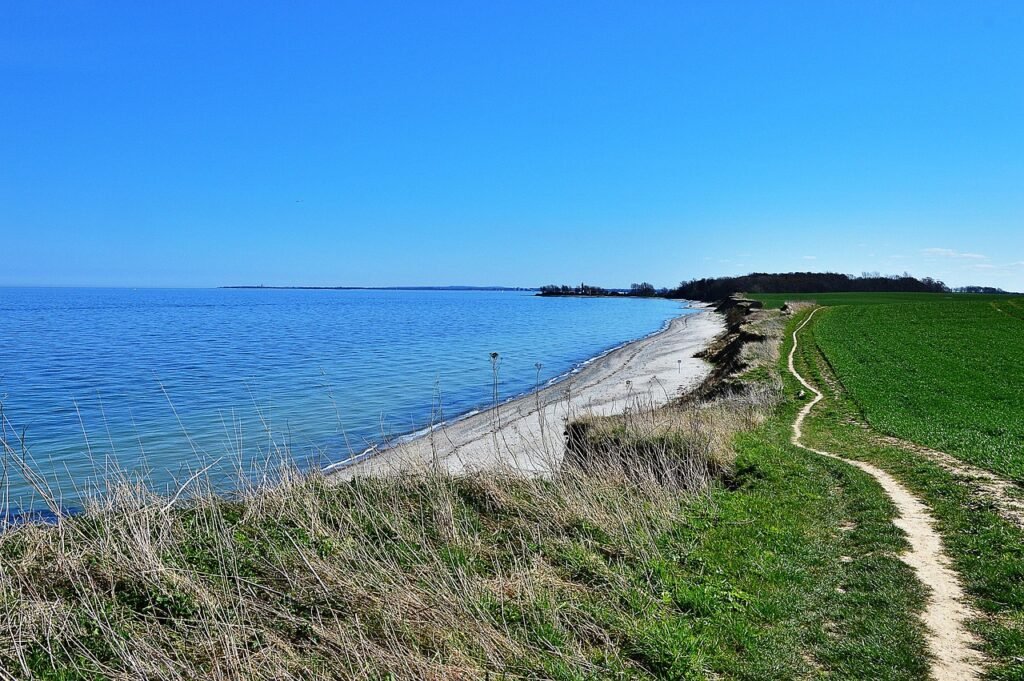Picture this: Warm sand between your toes, the rhythmic crashing of waves, and the sun kissing your skin. Beaches are more than just picturesque landscapes; they’re havens for relaxation, adventure, and connection with nature. Whether you’re a seasoned beachgoer or dreaming of your first coastal escape, this guide will explore the wonders of beaches, covering everything from choosing the right beach to ensuring a safe and enjoyable experience.
The Allure of Beaches: Why We Love Coastal Escapes
Beaches hold a unique attraction for people of all ages. From the soothing sounds of the ocean to the endless possibilities for recreation, they offer a respite from the stresses of everyday life.
The Psychological Benefits of Beach Time
Spending time at the beach can significantly impact your mental well-being. The sights, sounds, and smells of the ocean have been shown to reduce stress and promote relaxation.
- Reduced Stress: The sound of waves can lower cortisol levels, the hormone associated with stress.
- Improved Mood: Exposure to sunlight helps the body produce Vitamin D, which can boost mood and combat depression.
- Enhanced Creativity: The open space and natural beauty of the beach can inspire creativity and reflection. A study by the University of Plymouth found that coastal walks improved participants’ mood and creative thinking.
Activities and Recreation on the Shore
Beaches offer a wide range of activities for every interest and fitness level.
- Swimming and Water Sports: From surfing and paddleboarding to snorkeling and diving, the ocean provides endless opportunities for aquatic adventures.
Example: Surfing lessons in Waikiki, Hawaii, are a popular way to learn a new skill and enjoy the waves.
- Sunbathing and Relaxation: Simply soaking up the sun and enjoying the peaceful atmosphere can be incredibly rejuvenating.
- Beach Games: Volleyball, frisbee, and building sandcastles are fun ways to engage with friends and family.
- Wildlife Watching: Many beaches are home to diverse marine life, offering opportunities for birdwatching, dolphin spotting, and observing tide pool creatures.
Choosing the Perfect Beach for Your Needs
With so many beaches worldwide, selecting the right one for your vacation can feel overwhelming. Consider these factors to narrow down your options.
Types of Beaches: Sand, Pebble, and More
Beaches vary significantly in their composition, impacting the overall experience.
- Sandy Beaches: These are the most popular type, offering soft sand for sunbathing and building sandcastles.
Example: Whitehaven Beach in Australia is renowned for its pristine white silica sand.
- Pebble Beaches: Characterized by smooth, rounded stones instead of sand. They can be less comfortable for sunbathing but offer unique beauty.
Example: Durdle Door Beach in Dorset, England, is a stunning pebble beach with a natural limestone arch.
- Shell Beaches: Covered in shells, offering a treasure trove for collectors.
Example: Sanibel Island in Florida is famous for its abundance of seashells.
- Black Sand Beaches: Formed from volcanic rock, these beaches offer a dramatic and otherworldly landscape.
* Example: Reynisfjara Beach in Iceland features black sand, basalt columns, and powerful waves.
Beach Amenities and Accessibility
Consider the amenities and accessibility of a beach to ensure a comfortable and convenient visit.
- Accessibility: Is the beach easily accessible by car, public transportation, or walking?
- Parking: Is there ample parking available, and what are the parking fees?
- Facilities: Does the beach have restrooms, showers, changing rooms, and picnic areas?
- Lifeguards: Are lifeguards on duty, especially if you plan to swim?
- Food and Drink: Are there restaurants or cafes nearby, or should you bring your own provisions?
Budget Considerations for Beach Vacations
Beach vacations can range from budget-friendly to luxurious. Consider your budget when choosing a destination and planning your trip.
- Accommodation: Prices vary depending on the type of accommodation (hotel, vacation rental, campsite) and location.
- Transportation: Factor in the cost of flights, rental cars, or public transportation.
- Activities: Some activities, like surfing lessons or boat tours, can be expensive.
- Food and Drink: Dining out can add up, so consider preparing some of your own meals.
Beach Safety: Protecting Yourself and the Environment
Ensuring your safety and respecting the environment are crucial for a responsible and enjoyable beach experience.
Sun Safety and Skin Protection
Protecting your skin from the sun’s harmful rays is essential.
- Sunscreen: Apply a broad-spectrum sunscreen with an SPF of 30 or higher at least 20 minutes before sun exposure and reapply every two hours, or more often if swimming or sweating.
- Protective Clothing: Wear a hat, sunglasses, and loose-fitting clothing to shield your skin.
- Seek Shade: Limit your time in direct sunlight, especially during peak hours (10 AM to 4 PM).
Water Safety and Awareness
Be aware of potential hazards in the water and take precautions to stay safe.
- Swim in Designated Areas: Only swim in areas where lifeguards are present.
- Heed Warning Flags: Pay attention to warning flags indicating water conditions, such as rip currents or dangerous marine life.
- Never Swim Alone: Always swim with a buddy.
- Be Aware of Rip Currents: Rip currents are powerful channels of water flowing away from the shore. If caught in a rip current, don’t panic. Swim parallel to the shore until you escape the current, then swim back to shore.
- Respect Marine Life: Avoid touching or harassing marine animals.
Beach Etiquette and Environmental Responsibility
Protect the environment and ensure a pleasant experience for everyone by following these guidelines.
- Dispose of Trash Properly: Use designated trash receptacles or pack out everything you bring with you.
- Leave No Trace: Avoid disturbing plants or animals.
- Respect Wildlife: Observe marine life from a distance and avoid feeding animals.
- Be Mindful of Noise: Keep noise levels down to avoid disturbing other beachgoers.
- Respect Private Property: Stay off private property and avoid trespassing.
Essential Beach Gear and Packing Tips
Packing the right gear can make your beach trip more comfortable and enjoyable.
Must-Have Beach Essentials
- Sunscreen: As mentioned above, sunscreen is crucial for protecting your skin.
- Beach Towel: Choose a quick-drying and absorbent towel.
- Swimsuit: Pack a comfortable and well-fitting swimsuit.
- Sunglasses: Protect your eyes from the sun’s glare.
- Hat: A wide-brimmed hat provides shade for your face and neck.
- Beach Umbrella or Shelter: Provides shade and protection from the elements.
- Water Bottle: Stay hydrated by drinking plenty of water.
- Snacks: Pack healthy snacks to keep you energized.
- Beach Bag: A large bag to carry all your essentials.
- Flip-Flops or Sandals: Comfortable footwear for walking on the sand.
- Book or Entertainment: Bring something to keep you entertained during downtime.
Smart Packing Strategies
- Make a Checklist: Create a checklist of everything you need to pack to avoid forgetting anything.
- Roll Your Clothes: Rolling clothes saves space and helps prevent wrinkles.
- Use Packing Cubes: Packing cubes help organize your belongings and compress clothing.
- Pack a First-Aid Kit: Include essentials like bandages, antiseptic wipes, and pain relievers.
- Check the Weather Forecast: Pack accordingly for the expected weather conditions.
Conclusion
Beaches offer a unique blend of relaxation, adventure, and natural beauty. By understanding the different types of beaches, prioritizing safety, and packing the right gear, you can create unforgettable coastal experiences. Whether you’re seeking a peaceful escape or an action-packed adventure, the beach has something to offer everyone. So, grab your sunscreen, pack your bags, and get ready to soak up the sun, sand, and sea!

